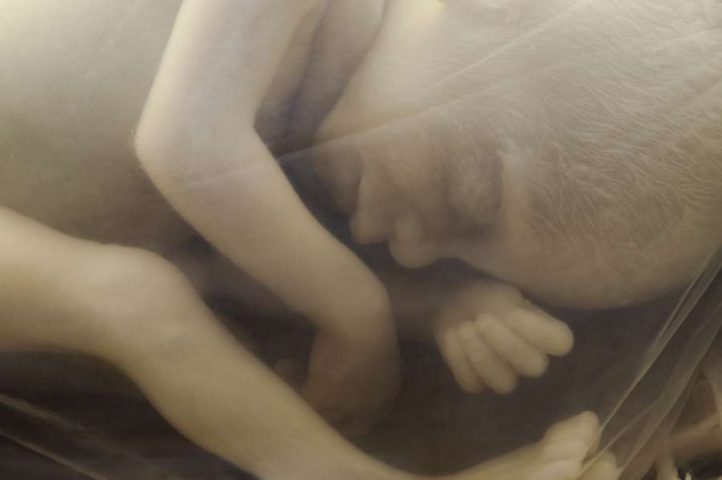Here’s a List of Everything a Baby Can Do in the Womb

The Curious Case of Fr. Kalchik
September 24, 2018
30 Yrs. Later, Global Warming Still Hasn’t Sunk Maldives
September 24, 2018
September 23, 2018
Babies can engage in an incredible number of activities before they’re born, including behaviors adults exhibit every day.
An unborn child can suck its thumb, stretch, cry, react to light, make facial expressions, sense touch, develop food preferences, respond to music and sounds, yawn, hiccup and even distinguish languages, Live Action founder Lila Rose tweeted in August.
 “Medical science has conclusively known for decades that a new, unique, human life starts at the moment of fertilization,” Lila Rose told The Daily Caller News Foundation. “The abortion industry falsely states that the child is only a ‘clump of cells,’ which completely denies the science of human development. The heartbeat begins at just three weeks after fertilization — often before the mother even knows she’s pregnant.”
“Medical science has conclusively known for decades that a new, unique, human life starts at the moment of fertilization,” Lila Rose told The Daily Caller News Foundation. “The abortion industry falsely states that the child is only a ‘clump of cells,’ which completely denies the science of human development. The heartbeat begins at just three weeks after fertilization — often before the mother even knows she’s pregnant.”
Unborn babies develop their fingerprints in the womb as well by touching the uterine wall and creating “friction ridges,” according to UCSB Science Line. Babies form finger pads by two to three months gestation and fingerprints are completely formed at six months gestation.
A number of experts have also maintained that life begins the moment an egg is fertilized.
Roe v. Wade gave women the permission to abort until the point of viability, noting that viability typically occurs somewhere between 24 and 28 weeks. Viability refers to the point at which an unborn baby can live outside of the womb. The U.S. Supreme Court recognized in 1994’s Casey v. Planned Parenthood that viability can occur at or before 23 weeks.
The American College of Obstetricians and Gynecologists (ACOG) defines periviable birth as “delivery occurring from 20 0/7 weeks to 25 6/7 weeks of gestation,” according to an October 2017 ACOG report.
“That babies can survive at 22 weeks is not a new finding; it has been known for 15 years … New research confirmed that 22-week fetuses, measured from the first day of the pregnant woman’s last menstrual cycle, can survive,” The Washington Postreported in May 2015.
Two of the youngest recorded premature babies to have been born and survive are Frieda Mangold at 21 weeks and 5 days in 2010 and James Elgin Gill at 21 weeks and 6 days in 1987.
A May 2015 study, published in the New England Journal of Medicine, reported that roughly 25 percent of babies born at 22 weeks gestation would survive if “actively treated in a hospital,” noting that a number of doctors do not actively care for babies born so prematurely, rendering their chances of survival slim.
A September 2015 study also reported that the survival rate for babies born at 23 weeks is 33 percent and 65 percent at 24 weeks. University of Iowa pediatrics professor and co-author of the study, Edward Bell, said he considers 22 weeks to be the new marker of viability, according to The New York Times.
Roughly 40 to 50 million babies are aborted in the world every year, according to the World Health Organization (WHO).
______________
Copyright 2018 Daily Caller News Foundation
Content created by The Daily Caller News Foundation is available without charge to any eligible news publisher that can provide a large audience. For licensing opportunities of our original content, please contact licensing@dailycallernewsfoundation.org.




